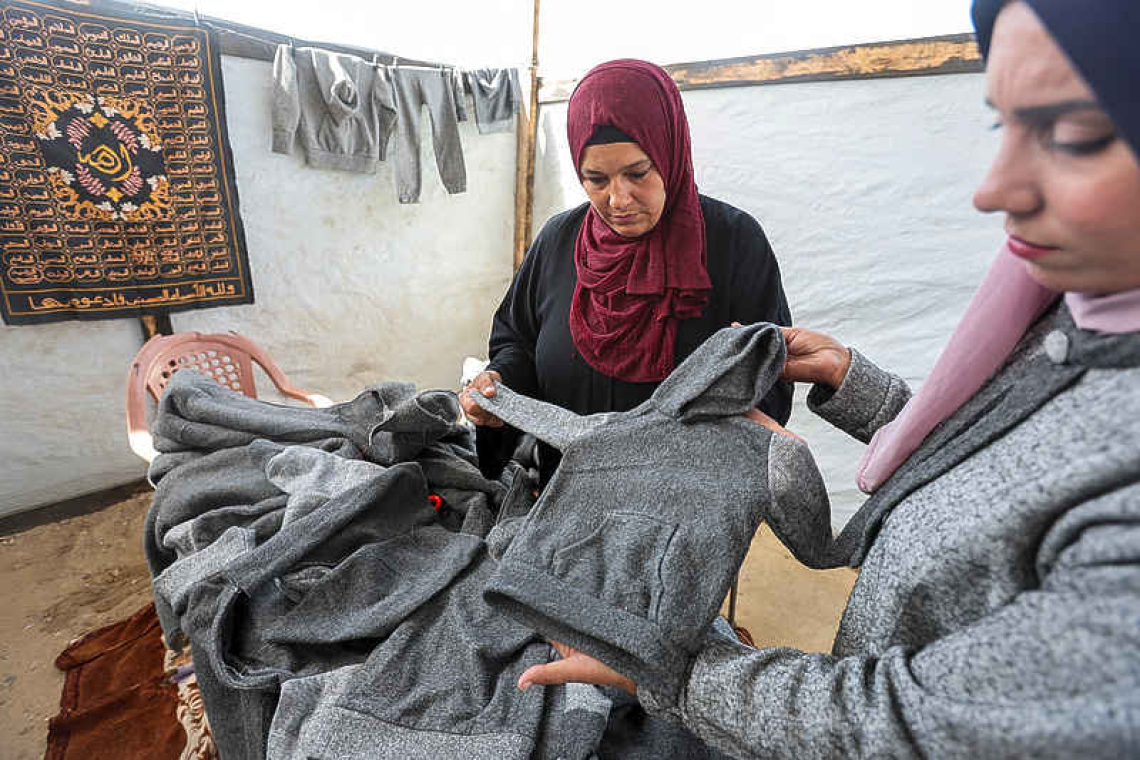JERUSALEM/CAIRO--Israel's parliament passed a law on Monday to ban the UN relief agency UNRWA from operating inside the country, alarming some of Israel's Western allies who fear it will worsen the already dire humanitarian situation in Gaza.
The Knesset members who drafted the law cited the involvement of a handful of the United Nations Relief and Works Agency for Palestine Refugees' thousands of staffers in the Oct. 7, 2023, attack on southern Israel and a few staffers' membership in Hamas and other armed groups. The vote came the same day Israeli tanks thrust deeper into two north Gaza towns and a refugee camp, trapping about 100,000 civilians, the Palestinian emergency service said, in what Israel's military said were operations to eliminate regrouping Hamas militants. The Israeli military said soldiers captured around 100 suspected Hamas militants in a raid into Kamal Adwan Hospital in the Jabalia camp. Hamas and medics have denied any militant presence at the hospital. The Gaza Strip's health ministry said at least 19 people were killed by Israeli airstrikes and bombardment on Monday.
The Palestinian Civil Emergency Service said around 100,000 people were marooned in Jabalia, Beit Lahiya and Beit Hanoun without medical or food supplies. Reuters could not verify the number independently. The emergency service said its operations had come to a halt because of the three-week Israeli assault into northern Gaza, where Israel had said it wiped out Hamas combat forces earlier in the year-long war. Talks led by the U.S., Egypt and Qatar to broker a ceasefire resumed on Sunday after multiple abortive attempts, with Egypt's president proposing an initial two-day truce to exchange four Israeli hostages held by Hamas for some Palestinian prisoners, followed by talks within 10 days on a permanent ceasefire. Israeli Prime Minister Benjamin Netanyahu said mediators would resume talks in coming days "in a continued attempt to advance a deal," without elaborating. Israel has repeatedly said the war will go on until Hamas is eradicated while the Islamist movement has ruled out any end to fighting until Israeli forces leave Gaza.
Gaza's war has kindled wider conflict in the Middle East, raising concern about global oil supplies, with Israel carrying out bombings across Lebanon and sending forces into its south in an offensive to disable Iran-backed Hezbollah, a Hamas ally. The conflict also triggered rare direct clashes between regional arch-foes Israel and Iran. Israeli warplanes pounded missile production sites in Iran during the weekend in retaliation for an Oct. 1 Iranian missile volley at Israel. Iran's Foreign Ministry said Tehran would "use all available tools" to respond to Israel's weekend attack. Israel continued battering Lebanon on Monday, including an early-morning airstrike on a district in the southern port of Tyre that left seven dead, the Lebanese health ministry said. Lebanon's health authority said Israeli attacks in Lebanon have killed 2,710 people and injured 12,592 others in the past year.
The Israeli military later issued an evacuation order for large swathes of Tyre, including areas that included neighbourhoods near a seaside hotel where journalists are usually based. Israel said it bombed Hezbollah anti-tank missile depots and other arms assets in Tyre for the second time in several days. Footage circulated online of civil defence workers driving through Tyre urging people to leave. "For your safety, because of the warning, evacuate immediately!" one shouted into a megaphone attached to a car. Israel's expanding evacuation warnings have made ghost towns out of much of southern Lebanon, including Tyre, and the bombing campaign has left many towns along the border in ruins. Hezbollah carried out a string of attacks on Israeli troops within Lebanese territory and on military targets within Israel. It said it had struck a military equipment factory southeast of Acre, but there were no reports of damage or casualties.







